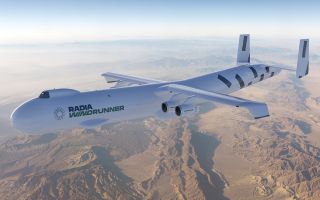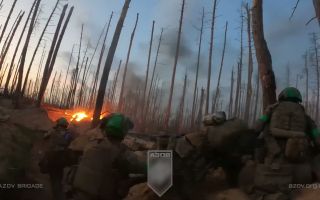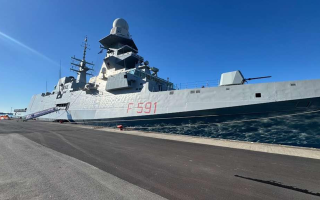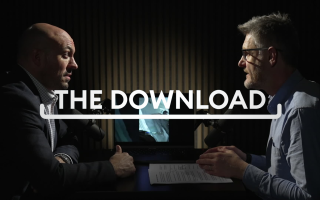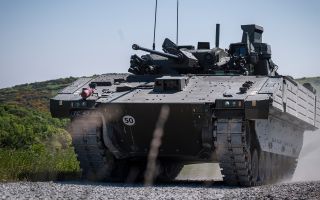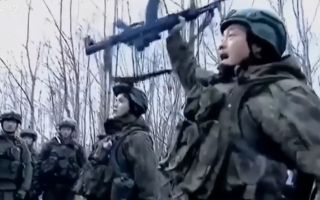US Softens War Talk But Vows Other Pressure On North Korea
The Trump administration has attempted to tamp down talk of military action against North Korea, saying it will apply economic and diplomatic pressure on the country to dismantle its nuclear weapons programme.
President Donald Trump welcomed Republican and Democratic senators before his secretary of state, defence secretary, top general and national intelligence director at an extraordinary classified White House briefing.
The same team also met with House members in Washington to outline the North's escalating nuclear capabilities and US response options to what they called an "urgent national security threat". A joint statement by agency chiefs said:
"[Mr Trump's approach] aims to pressure North Korea into dismantling its nuclear, ballistic missile and proliferation programs by tightening economic sanctions and pursuing diplomatic measures with our allies and regional partners".
The statement, made after weeks of unusually blunt military threats, made no specific mention of military options, though it said the US would defend itself and friends.
The unprecedented meeting in a building adjacent to the White House reflected the increased American alarm over North Korea's progress in developing a nuclear-tipped missile that could strike the US mainland.
While tensions have increased since Mr Trump took office, they have escalated dramatically in recent weeks as American and other intelligence agencies suggested the North was readying for a possible nuclear test.
Mr Trump has sent high-powered US military vessels and an aircraft carrier to the region in a show of force, while the North conducted large-scale, live-fire artillery drills, witnessed by national leader Kim Jong Un, earlier this week.
On Wednesday, key parts of a contentious US missile defence system that has sparked Chinese and Russian concerns started being installed in South Korea.
America's Pacific forces commander, Admiral Harry Harris Jr told Congress the system would be operational within days. He said any North Korean missile fired at US forces would be destroyed:
"If it flies, it will die."
The Trump administration has said all options, including a military strike, are on the table.
But the administration's statement after briefing senators outlined a similar approach to the Obama administration's focus on pressuring Pyongyang to return to long-stalled denuclearisation talks
Mr Trump's top national security advisers said they were "open to negotiations" with the North, though they gave no indication of when or under what circumstances.
The strategy hinges greatly on the cooperation of China, North Korea's main trading partner. Senator John McCain said:
"China is the key to this."
Among the options are returning North Korea to the US state sponsor of terrorism blacklist, which Secretary of State Rex Tillerson said last week was under consideration.
His spokesman, Mark Toner, said on Wednesday that another tactic is getting nations around the world to close down North Korean embassies and consulates, or suspending them from international organisations.
Testifying before the House Armed Services Committee, Admiral Harris said he expects North Korea to soon be able to develop a long-range missile capable of striking the United States, as Mr Kim has promised.
"One of these days soon, he will succeed," Harris said.
North Korea's UN mission said on Wednesday the nation would react to "a total war" with Washington by using nuclear weapons. It vowed victory in a "death-defying struggle against the US imperialists".

